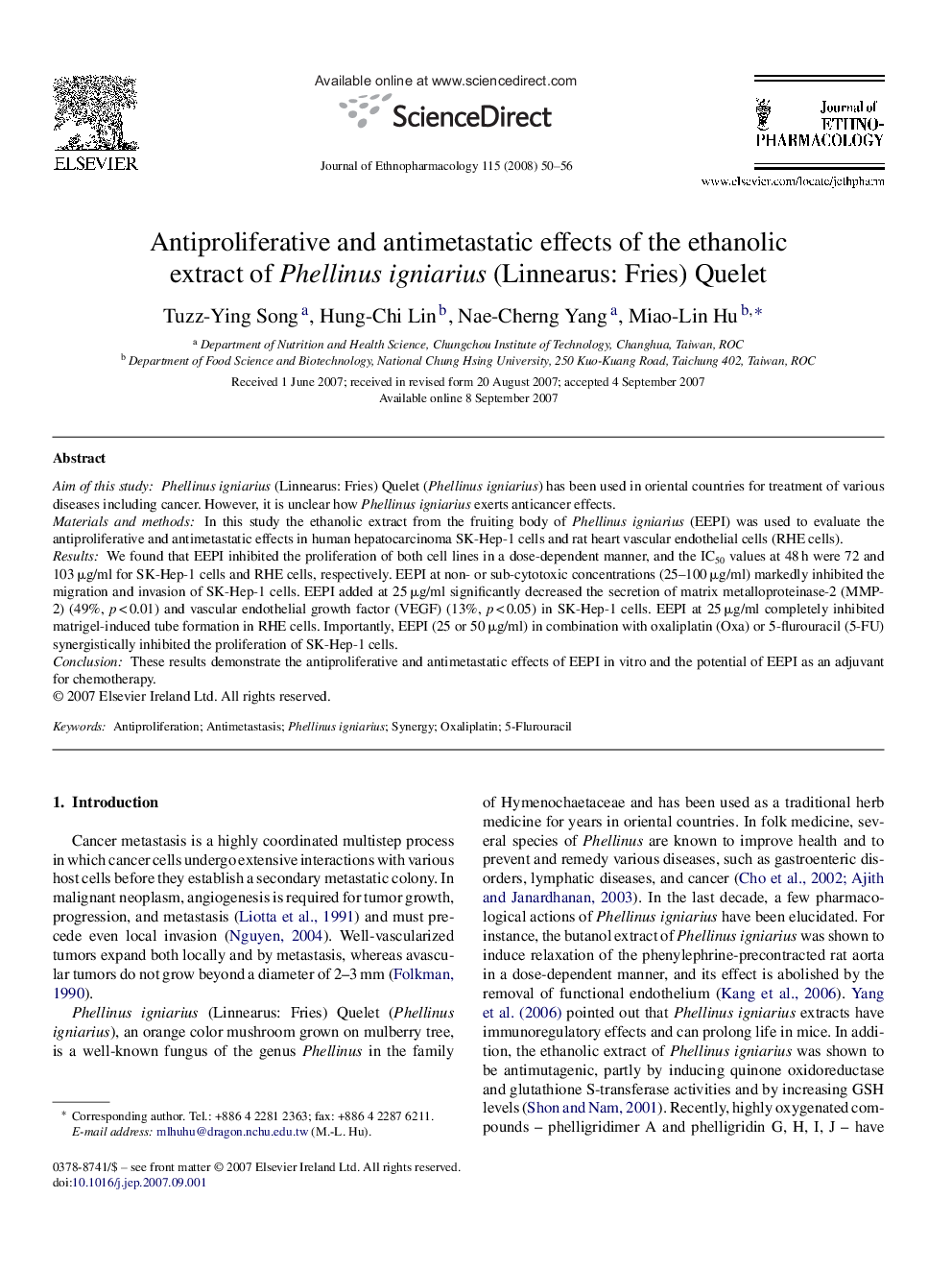| Article ID | Journal | Published Year | Pages | File Type |
|---|---|---|---|---|
| 2547650 | Journal of Ethnopharmacology | 2008 | 7 Pages |
Aim of this studyPhellinus igniarius (Linnearus: Fries) Quelet (Phellinus igniarius) has been used in oriental countries for treatment of various diseases including cancer. However, it is unclear how Phellinus igniarius exerts anticancer effects.Materials and methodsIn this study the ethanolic extract from the fruiting body of Phellinus igniarius (EEPI) was used to evaluate the antiproliferative and antimetastatic effects in human hepatocarcinoma SK-Hep-1 cells and rat heart vascular endothelial cells (RHE cells).ResultsWe found that EEPI inhibited the proliferation of both cell lines in a dose-dependent manner, and the IC50 values at 48 h were 72 and 103 μg/ml for SK-Hep-1 cells and RHE cells, respectively. EEPI at non- or sub-cytotoxic concentrations (25–100 μg/ml) markedly inhibited the migration and invasion of SK-Hep-1 cells. EEPI added at 25 μg/ml significantly decreased the secretion of matrix metalloproteinase-2 (MMP-2) (49%, p < 0.01) and vascular endothelial growth factor (VEGF) (13%, p < 0.05) in SK-Hep-1 cells. EEPI at 25 μg/ml completely inhibited matrigel-induced tube formation in RHE cells. Importantly, EEPI (25 or 50 μg/ml) in combination with oxaliplatin (Oxa) or 5-flurouracil (5-FU) synergistically inhibited the proliferation of SK-Hep-1 cells.ConclusionThese results demonstrate the antiproliferative and antimetastatic effects of EEPI in vitro and the potential of EEPI as an adjuvant for chemotherapy.
